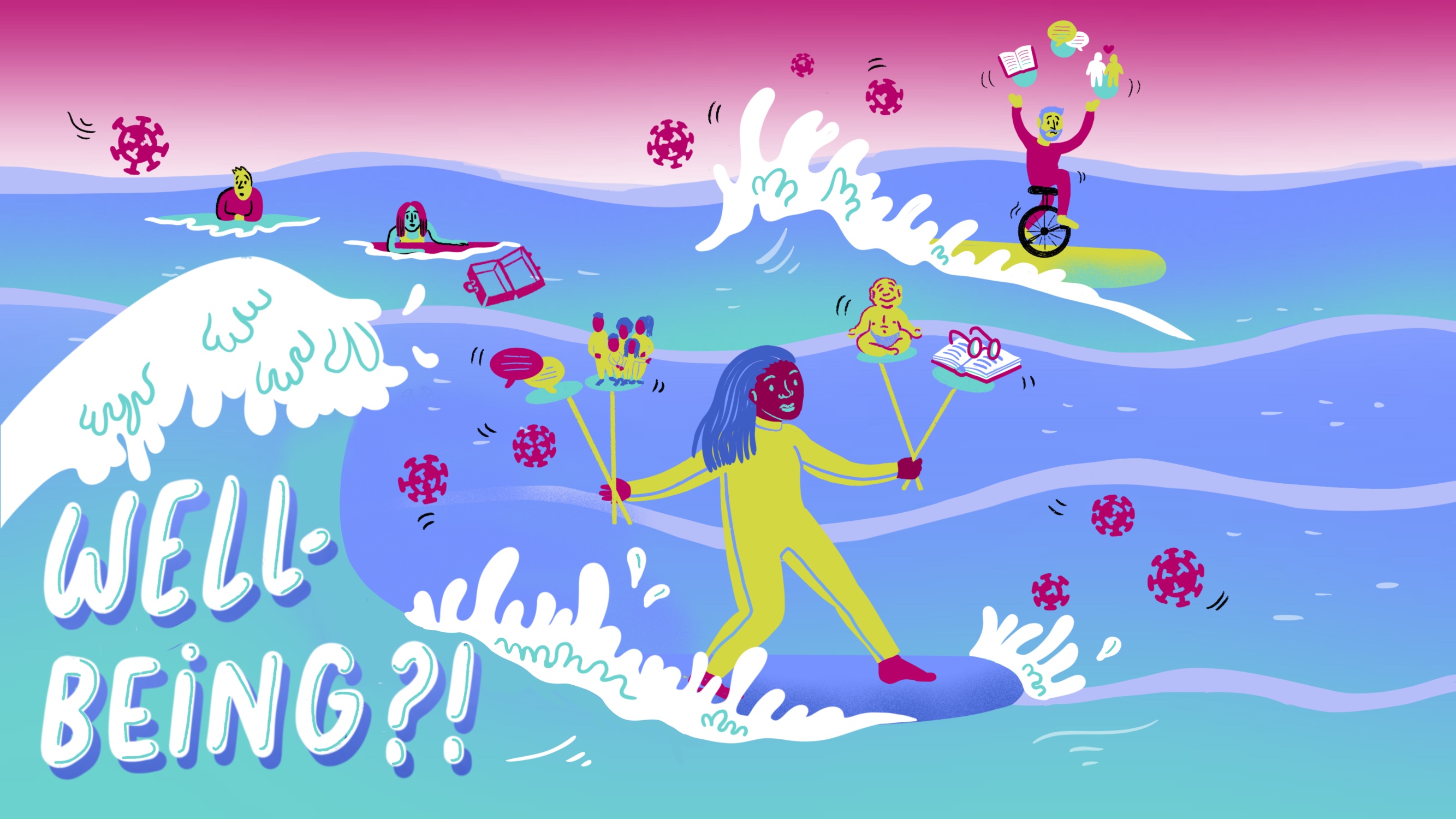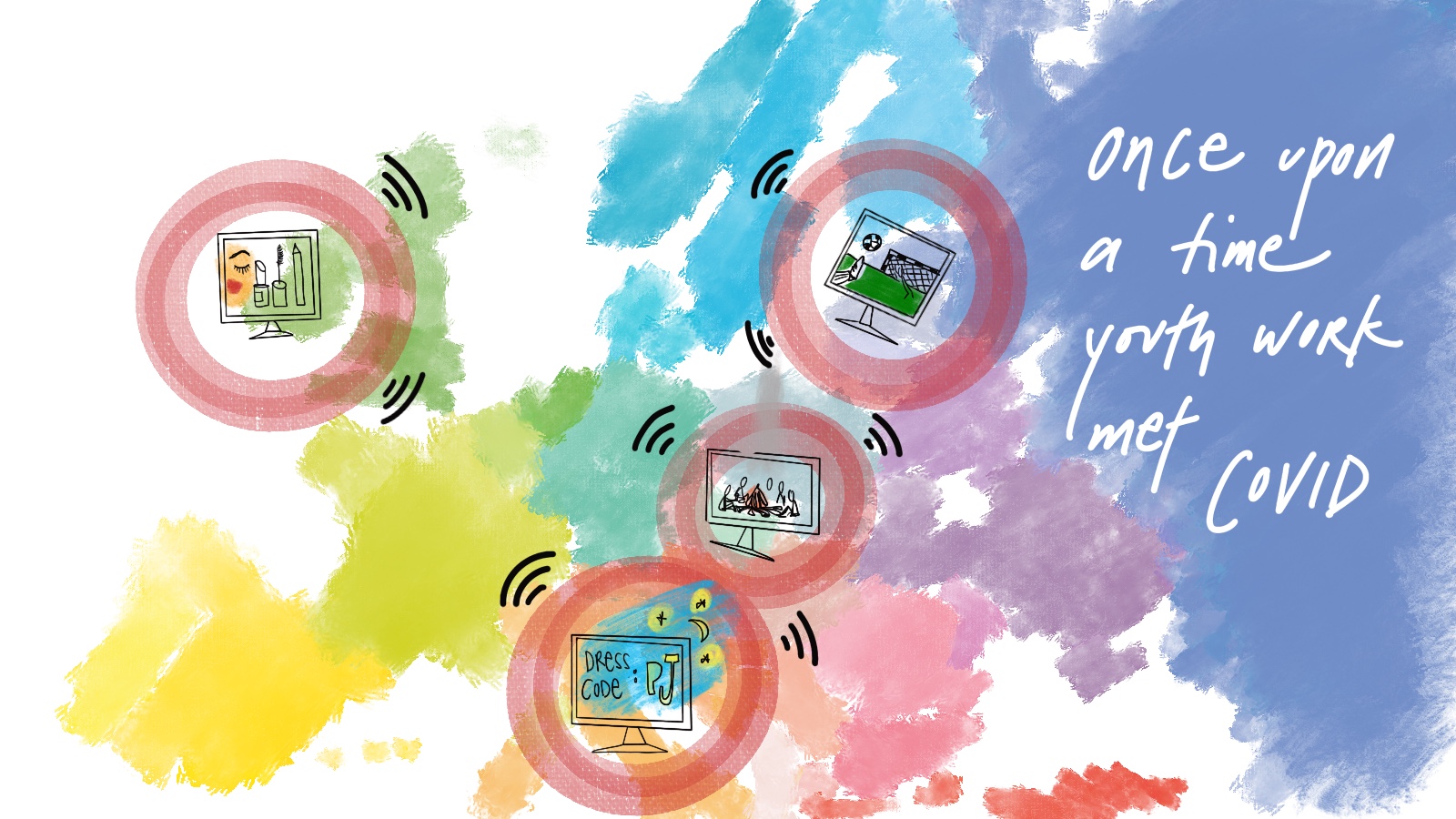Once upon a time... youth work met Covid
Interviews with youth workers about the effects of Covid-19 on their work
by Monika K. Jakniūnienė
13/12/2021
Once upon a time the global pandemic put our resilience to the test. I have talked to four youth workers from four different countries, who are involved in different types of youth work. My intention was to hear their stories – how they (and the young people they work with) have met lockdowns in their countries, what kind of practices they have developed in their work with youth, and, after all, how all of it has affected their well-being.
 Meet the wonderful four
Meet the wonderful four
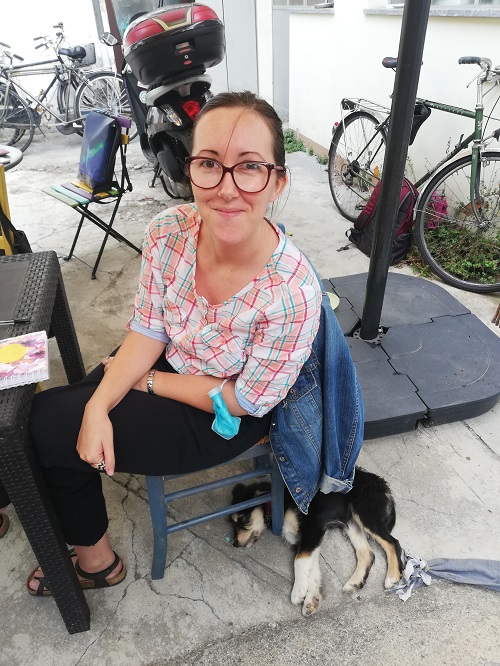
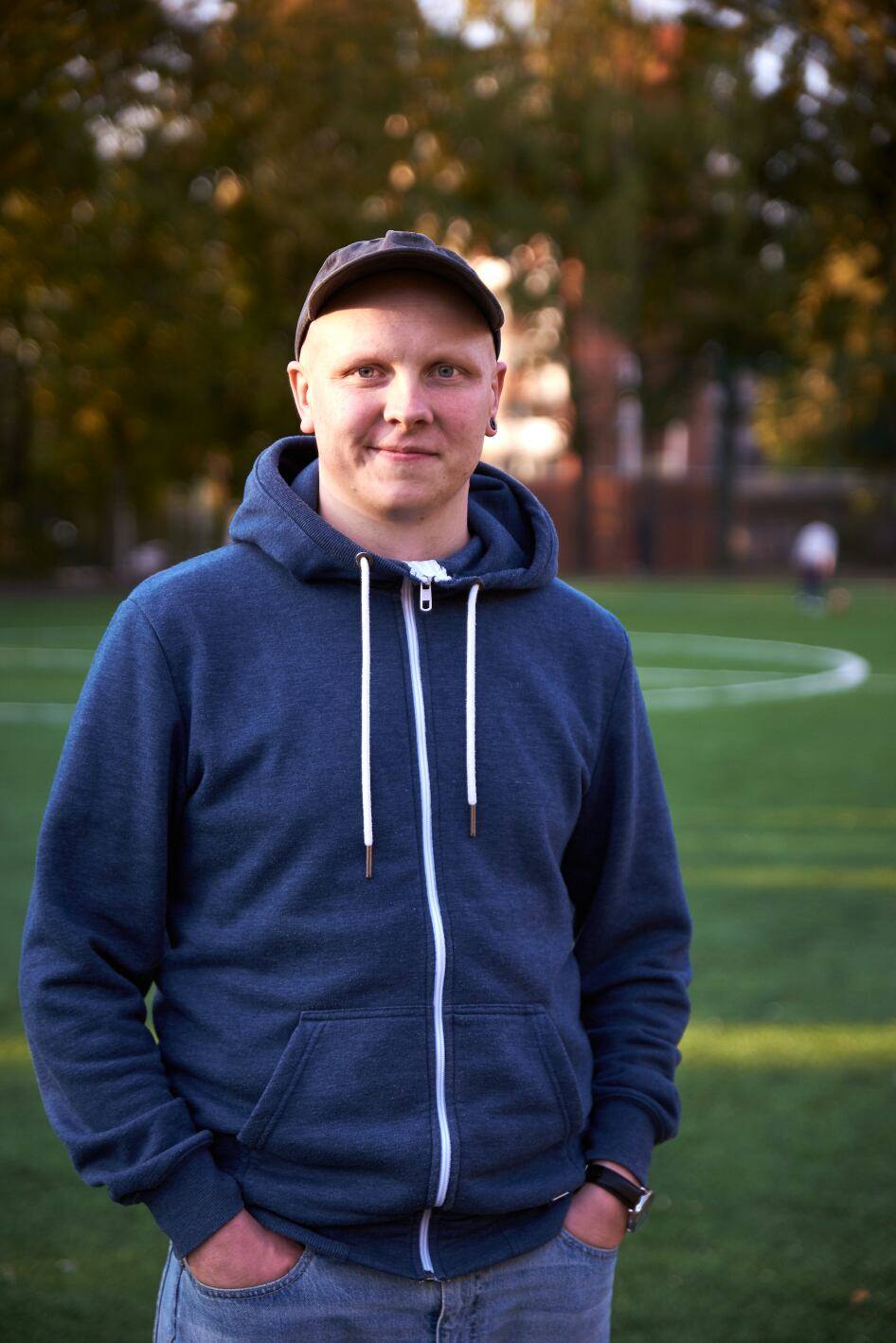
Kasparas Laureckis from Lithuania is a street youth worker and now is in charge of the entire street youth work programme and teenagers’ club at Vilnius Social Club, which is counting its sixth season as a professional youth work organisation. As an organisation, they are open to all young people, but they specifically target young people experiencing various additional difficulties on top of the challenges presented by adolescence.
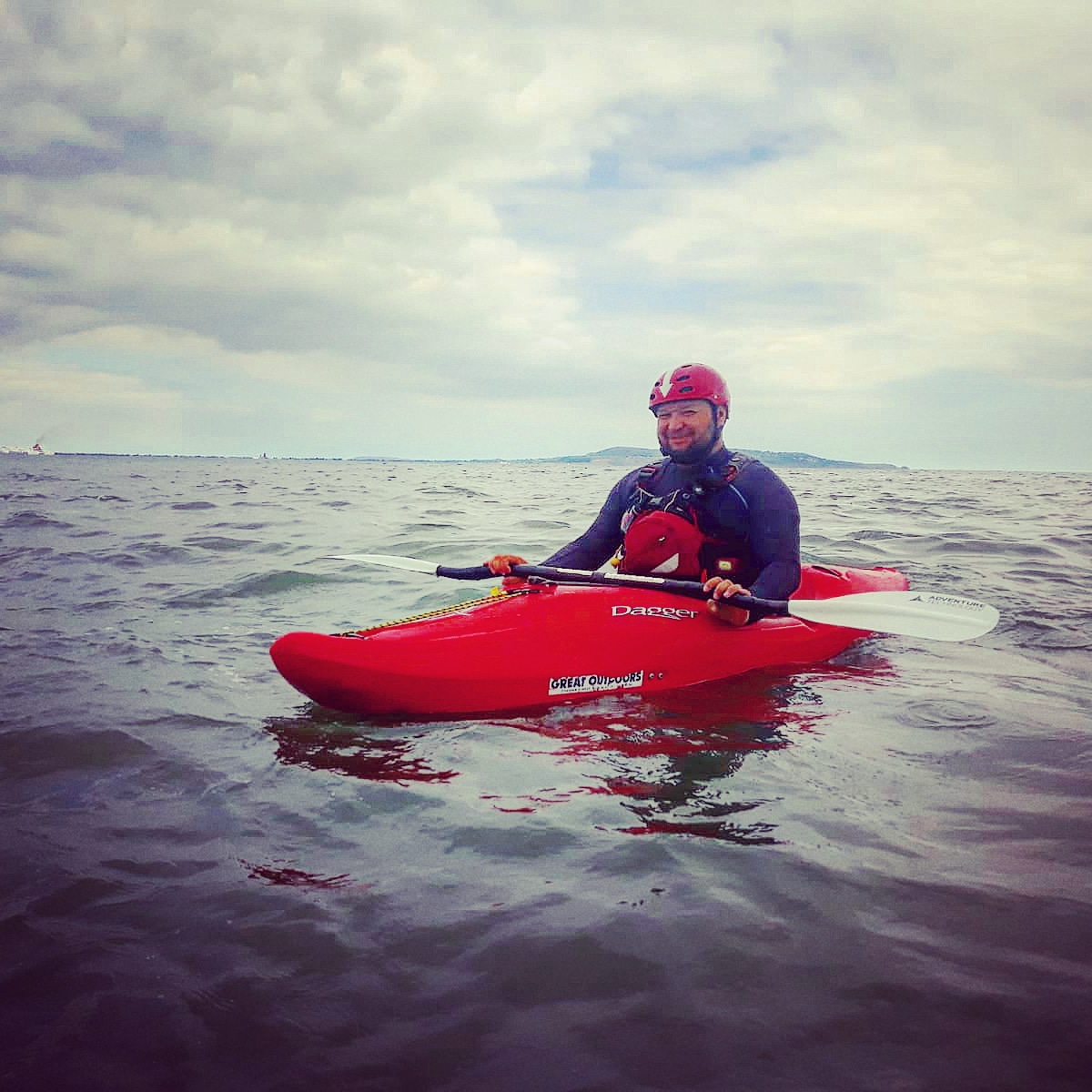
Damien Beatty from Foróige in Ireland is a professional youth worker involved in different programmes within the organisation: such as the Youth Café, based on the drop-in principle and offering a comprehensive range of activities; the Tech Space Programme, focusing on developing digital tech skills; and the Youth Sports Programme, taking care of the physical activity of young people. He is also qualified to run outdoor educational programmes. All these programmes are identified as, what they call in Ireland, targeted youth work – targeting antisocial behaviour, early school leavers, social isolation and also working with drugs and alcohol education. Besides all that, Damien is also in charge of individual work with young people.
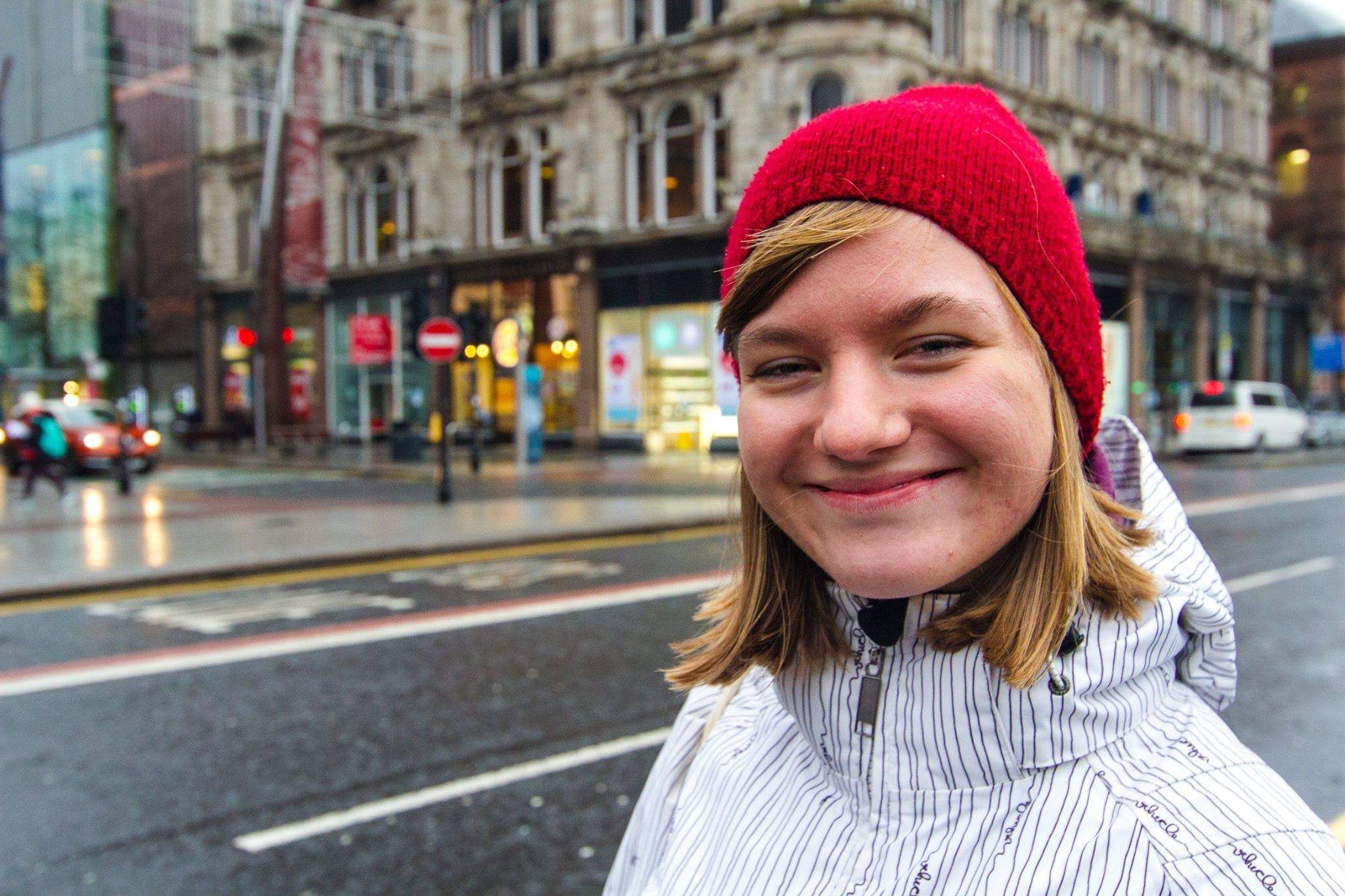
Radka Matyášová from the Czech Republic counts two years in the youth organisation Maják, where she’s involved in organising youth summer camps for young people to support their English language learning through positive learning experiences. She has also mentored European Solidarity Corps volunteers for the last four years at the organisation Lužánky.
 Taming the online
Taming the online
Once the lockdowns started in their countries, it seems that for all the interviewed youth workers it was a fairly abrupt stop. Actually, it was a short pause, not a stop. They went online to think about how to continue to keep in contact with young people, and as Damien says, “we had to become innovative very quickly in finding solutions on how to reach young people on a regular basis”. Some activities were transferred online and have transformed into something unusual. Damien told how he and his colleagues came up with online movie nights, online cooking, online FIFA matches, even make-up and hairstyling courses. They have not only tamed Zooms, Kahoots or TikToks, but also experimented a lot with virtual reality – young people meeting in youth cafés in Altspace world or Rec Room.
Radka mentions that they have also come up with different kinds of “blended” activities for volunteers – “to cook something that you’ve never cooked before, go to the forest and share a photo”, or similar things like this. These kinds of activities helped them to stay connected, keep active and learn something new. As regards the summer camps Radka is involved in, the camp was cancelled during the first summer of Covid as it was too challenging to organise.
Speaking of challenges, going online for Sara’s target group was a real stretch zone. As all the international activities were blocked, their organisation couldn’t offer much to young people, but still continued to keep in contact with a small group of them online. “We tried to keep a high interest in waiting for better days to come. To keep them hopeful and busy.” When I asked how it was to go online in the learning centre, she shared: “The online dimension is not super friendly for those who have learning disabilities, so they were particularly challenged.” Also, it was difficult to have online meetings with the members of the LGBT organisation, as young people were not feeling safe, “because if you are not openly out in the family, so it’s also complicated to freely speak or chat with us from the home environment”. This resulted in some withdrawal of members from the organisation, as Sara said, “the obstacles were bigger than the benefits of joining”.
In Kasparas’ organisation they went online only for two weeks – in order to plan their next steps. Then the youth workers returned to the streets, although with restrictions. They continued contacting young people in public spaces because young people were still going outside, despite the restrictions. For comparison: “Before the lockdown a street youth worker would contact on average 17 young people a day, during the lockdown – on average 8 young people”.
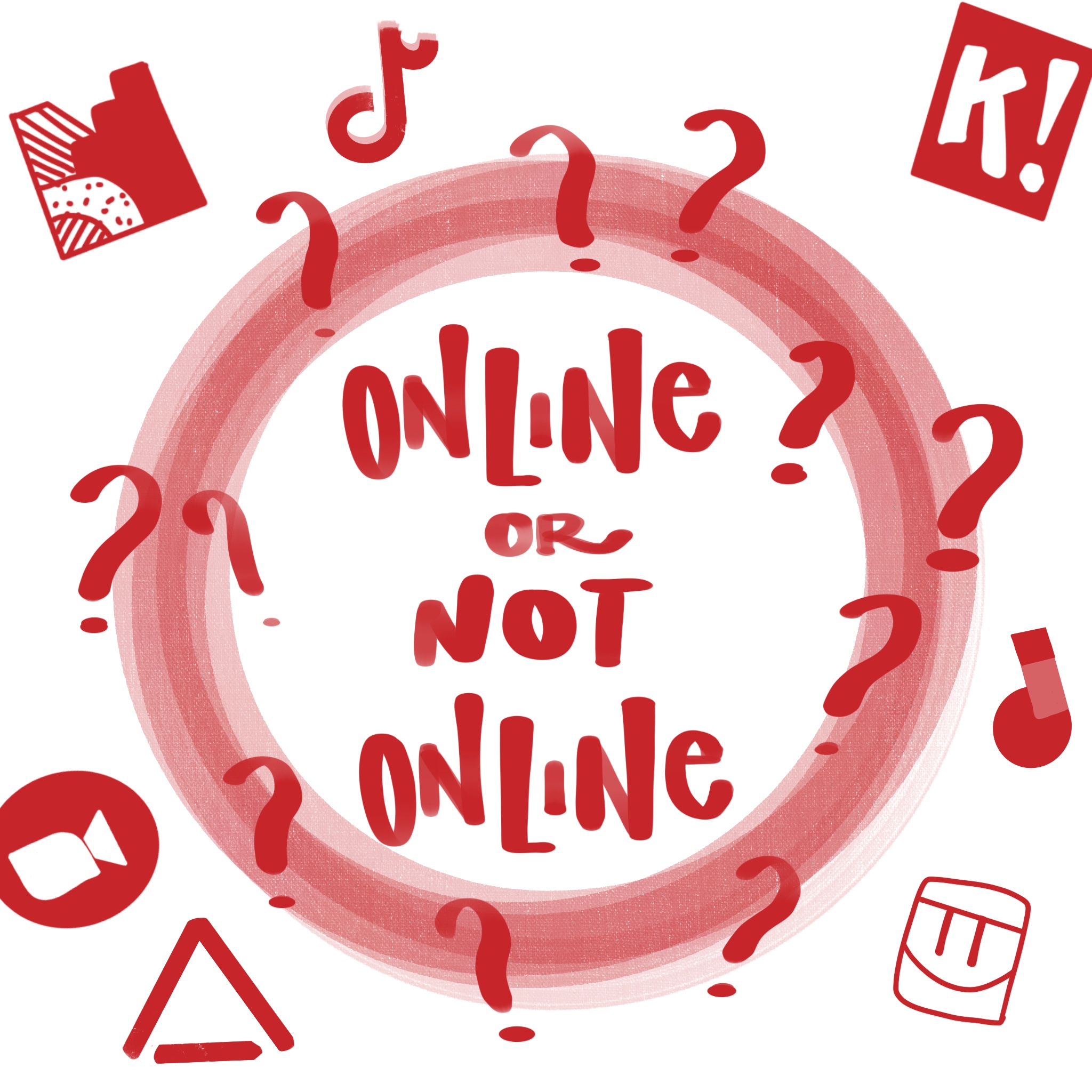
They kept contact with the community and helped them with other challenges the first months of Covid had offered – a lack of face masks and disinfectant liquid. Later on they even supported them in dealing with the fines young people received for breaching lockdown restrictions.
As Kasparas said, “We did not tame the online, as many of our target group did not have conditions (devices, proper internet) or they would have spent lots of time online for schoolwork; we tried to counterweight this by inviting them to move outside” – not in groups, but at least individually. During our talk with Kasparas, he emphasised several times that in their organisation they recognise movement as very important for young people – so their brains get oxygen!
 Observations of the effects on young people
Observations of the effects on young people
As youth workers are in the front line with young people, I was curious to hear first-hand how they saw Covid affecting young people.
Once the summer camp was organised in summer 2021 (“not because there were no Covid waves anymore, but because people were fed up with waiting”), Radka noticed participants being not only physically distant due to Covid safety measures, but also socially distant – young people much shyer than usual. This was especially visible at the beginning, but as she said, “their enthusiasm returned after the first day”.
Damien witnessed a dramatic increase in mental health issues. The online individual talks were becoming more frequent – young people approached youth workers as they felt isolated, very anxious around schoolwork, especially related to exams. The uncertainty was strengthened by anxiety around Covid – “anxious about family members getting Covid, grandparents passing from Covid, they were not allowed to go to funerals and funerals is a big thing in Ireland”. Also Damien and his colleagues noticed an impacting decrease in school performance, more antisocial behaviour reported by the police or by residents in the community and local community organisations. Young people still went outside and there was no safe place for them to meet.
Kasparas shares similar observations about worsened school results and adds in lower self-esteem, strained relationships with family members and more pessimistic views about the future. In general, he sees that the development of young people has been disrupted. “When you are 15 or 16 it’s essential to find new connections, to invite another girl or boy for a date or to build other relationships – so it’s a big loss and big tension for them.” Kasparas draws wider conclusions about the entire system being unable to support vulnerable youth. “Their lives have been violated,” he states, and gives an example of a family with seven children, six of them having slight mental disabilities. They would usually attend a special educational support centre, which in general works based on old Soviet principles with no actual integration of such children into society. And then, when the lockdown started they had to go online, so for them it’s impossible, as they are not capable of going online. Consequently, they have had no education for a whole year. “For them the Covid experience was and is crippling.”
What Sara shared is similar to Kasparas’ insights into the shortcomings of the system. “Third sector was really left behind – we could not hold any activity residentially”, although they saw how their services would have been useful for confused, tired, unmotivated young people, feeling powerless regarding their future prospects. Young people needed a safe space to meet and address their feelings and needs.
Radka’s story about her mentees supports the insights about increased mental health difficulties. Some volunteers needed support from a psychologist. On a positive note, one of the effects she noticed – young people became closer to each other even through the online meetings. They started appreciating the connections and relationships they had. They realised the importance of what they’ve had when they couldn’t do it.


 On the bright side
On the bright side 


Speaking about positive notes... Although it does not come naturally to me, I still try to look at the bright side of any calamity. Is there a bright side of Covid visible in your work with young people? When asked, all four interviewees shared that most of their learning was about the way they approach work – they became more flexible and creative, learned to make decisions faster, to work on the short-term goals and not to be attached to one way of working. Radka says, “we understood that we don’t need the whole year to organise a camp, as we were used to doing. In 2021 we organised it in just several months.”
On top of that Damien shares that one of the positive sides in their work is that they got in closer contact with the parents of young people. “Prior to the pandemic we would hardly have any contact with parents, because it’s young people walking through the doors we worked with. We communicated with parents via WhatsApp and individually in order to arrange activities online. After the pandemic they are likely to rely on us.”
Kasparas appreciated new partnerships with other organisations that were built when coming up with the warm food distribution service they provided to the families in the neighbourhood. They continued co-operating with the local food bank in the context of other activities. One of those activities was soft employment – soft work placements, when young people get employed on a part-time job: “They do the work together with a youth worker. This is a very important experience for young people – opening their bank account, receiving salary, arranging other kinds of documentation. It’s one of the tools for us to work with and co-operating with the food bank who offered one of the placements.”
Damien is also proud about the projects, which, he believes, would have happened way differently if not for the restrictions of Covid. They have implemented a very successful computer game development project – for three months a group of young people learned how to design computer games from scratch. “Their digital skills have increased and this project raised their self-sufficiency!” During the climate justice project with a group of 10-12 year olds, they have connected via video conference call with the minister of Children and Youth Affairs of Ireland. “It was exciting for them to share with the minister that they were building bug hotels and planting trees.” And Damien is sure that it would not have been possible to have a meeting with the minister if online weren’t the new normal.
Radka and Sara mentioned that their relationships with young people have got new qualities. The fact that they were going through the same thing, being stuck in all the restrictions together, it was easier than usual to build an empathetic relationship with young people. “You don’t have the physical contact, but the experience of going through this together was useful and bonding.”
 The full spectrum of tiredness
The full spectrum of tiredness
In one way or another youth workers mentioned a huge increase of workload during Covid. This was mainly due to the fact that besides the activities they had to do, they also had to rethink how to do them. Damien shares that the amount of organisational things to be solved has increased a lot – he was spending at least several hours a week only for scheduling the communication with young people, their parents and colleagues.
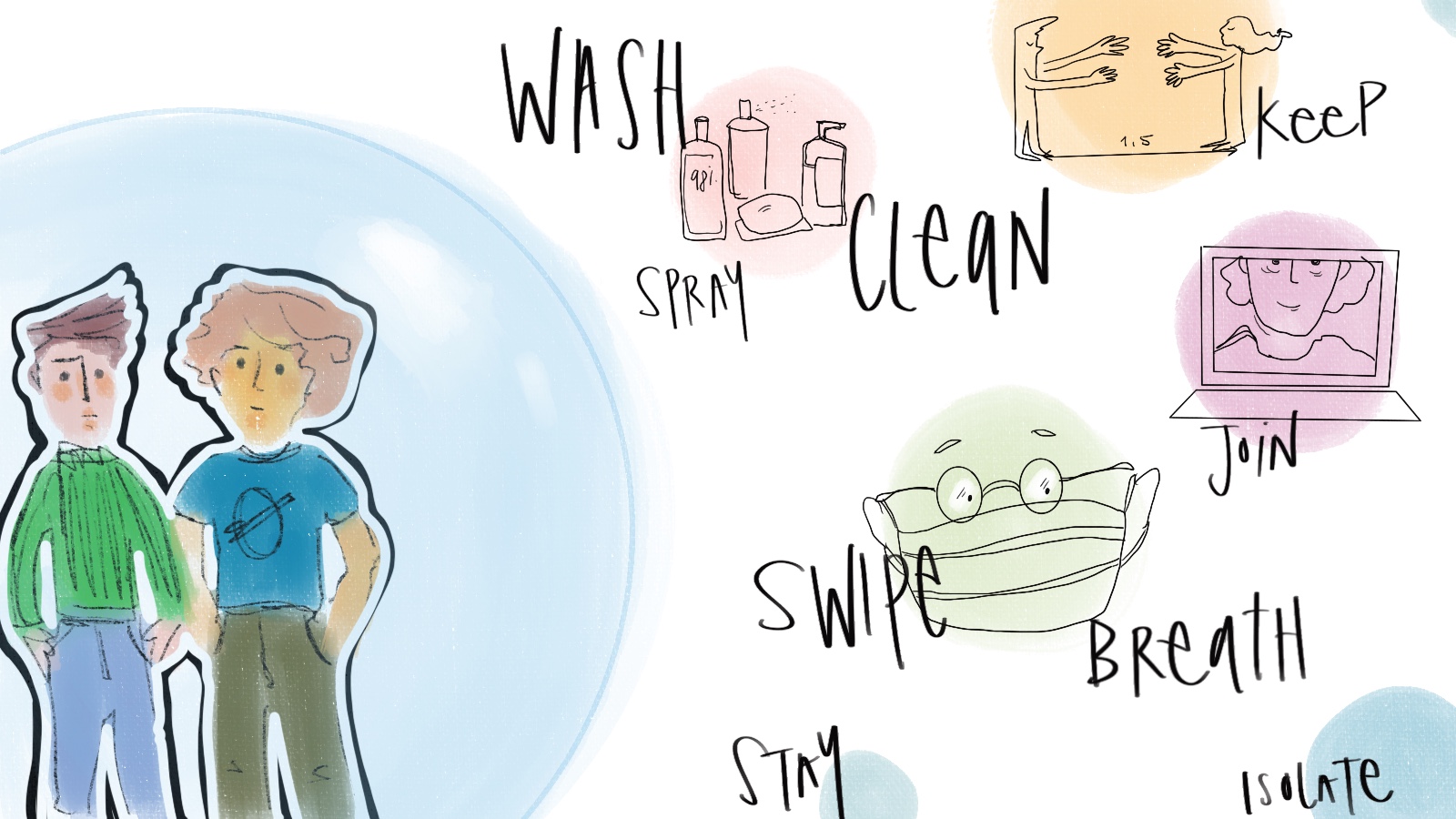
Sara has been feeling that the pace of work did not slow down at all – the fear of the unknown has pushed people to work even more, their organisation has been on a survival mode (mainly financially) and lots of energy was put into keeping the organisation going. “The greatest achievement of all this period is the fact that our organisation still exists,” she states.
No wonder that when asked about their own well-being all the youth workers mentioned many symptoms of tiredness: “I feel that my inner resources are finishing,” says Sara.
“I felt such profound fatigue, even one month of holiday in summer did not help to recover,” rejoins Kasparas. One of the factors that influenced Damien’s tiredness was that there were no boundaries between work and personal life. “With my computer in the kitchen, logging off did not mean that I left work, it was so easy to check one more message.” He shares that even together with colleagues when they had online coffee mornings and well-being weeks, focusing on their mental health and physical exercise classes, it was still difficult to avoid the consequences of mental and physical stress. If he were to go through this kind of period again, Damien would surely prioritise self-care.
While thinking on how to end this article, some conclusions are forming in my mind – for youth workers limited resources led to creative solutions. Some of them manifested in using different tools to work with young people, some of them resulted in developing relationships differently, or even opening new services, but what is all-important is that all the creativity was based on the needs of young people.
Finally, I remembered the feeling I had after all four interviews. I felt the sense of togetherness – many times during the interviews I was nodding my head a lot. Although I do not work directly with young people anymore, there’s a lot in common in my response to Covid. And I also felt gratitude to youth workers, because they were there for young people and they did the best they could. Thank you.

